Notebook
-
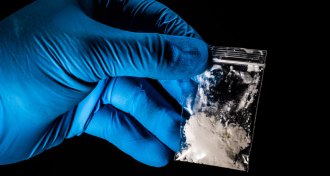 Health & Medicine
Health & MedicineA single-dose antidote may help prevent fentanyl overdoses
Packing overdose medication into nanoparticles could help it better counteract dangerous synthetic opioids.
-
 Health & Medicine
Health & Medicine50 years ago, drug abuse was higher among physicians than the public
In 1969, physicians abused drugs at a higher rate than the general public — that’s still true today.
By Jeremy Rehm -
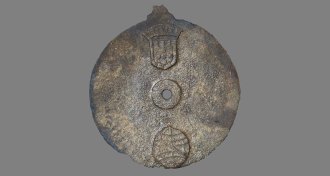 Archaeology
ArchaeologyThe oldest known astrolabe was used on one of Vasco da Gama’s ships
A navigational device for taking altitudes at sea was found in a Portuguese shipwreck in the Arabian Sea and dates back to 1496.
By Bruce Bower -
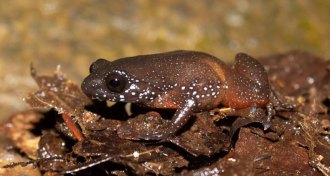 Animals
AnimalsMeet India’s starry dwarf frog — a species with no close relatives
The newly identified starry dwarf frog represents a new species, genus and potentially even a new family.
By Jeremy Rehm -
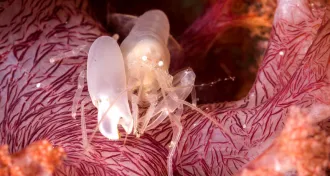 Life
LifeSome shrimp make plasma with their claws. Now a 3-D printed claw can too
Scientists used a replica of a shrimp claw to re-create the extreme pressures and temperatures that the animals produce underwater.
-
 Health & Medicine
Health & MedicinePharmaceutical abuse sent more than 350,000 people to the ER in 2016
The misuse of pharmaceuticals sent an estimated 350,000 people to U.S. emergency departments in 2016.
-
 Health & Medicine
Health & Medicine50 years ago, doctors lamented a dearth of organ donors
Fifty years ago, surgeons’ supply of heart donations was woefully low.
-
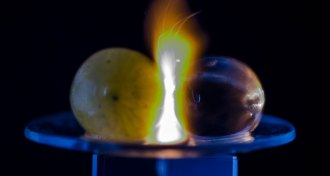 Physics
PhysicsMicrowaved grapes make fireballs, and scientists now know why
Electromagnetic waves bounce back and forth inside a grape, creating plasma.
-
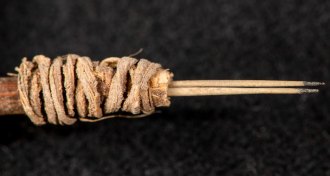 Archaeology
ArchaeologyA 2,000-year-old tattoo tool is the oldest in western North America
The artifact is made of two pigment-stained cactus spines, and has been sitting in storage since its discovery in 1972.
By Bruce Bower -
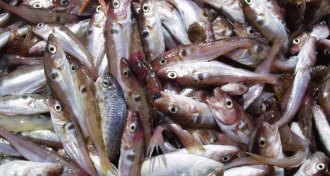 Oceans
OceansOceans that are warming due to climate change yield fewer fish
Warming water due to climate change is diminishing sustainable fishery yields in the world’s oceans.
-
 Health & Medicine
Health & Medicine50 years ago, people thought MSG caused ‘Chinese restaurant syndrome’
In the 1960s, people blamed monosodium glutamate in Chinese food for making them sick, but the claim hasn't stood up to time or science.
-
 Artificial Intelligence
Artificial IntelligenceWhy a data scientist warns against always trusting AI’s scientific discoveries
Artificial intelligence that helps make scientific discoveries needs to get better at admitting its uncertainty, Genevera Allen says.